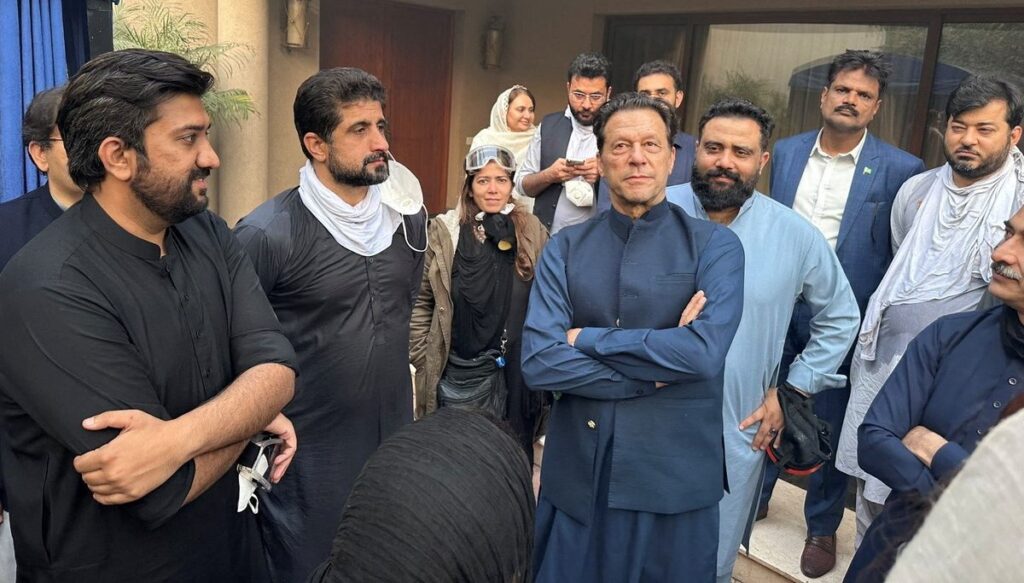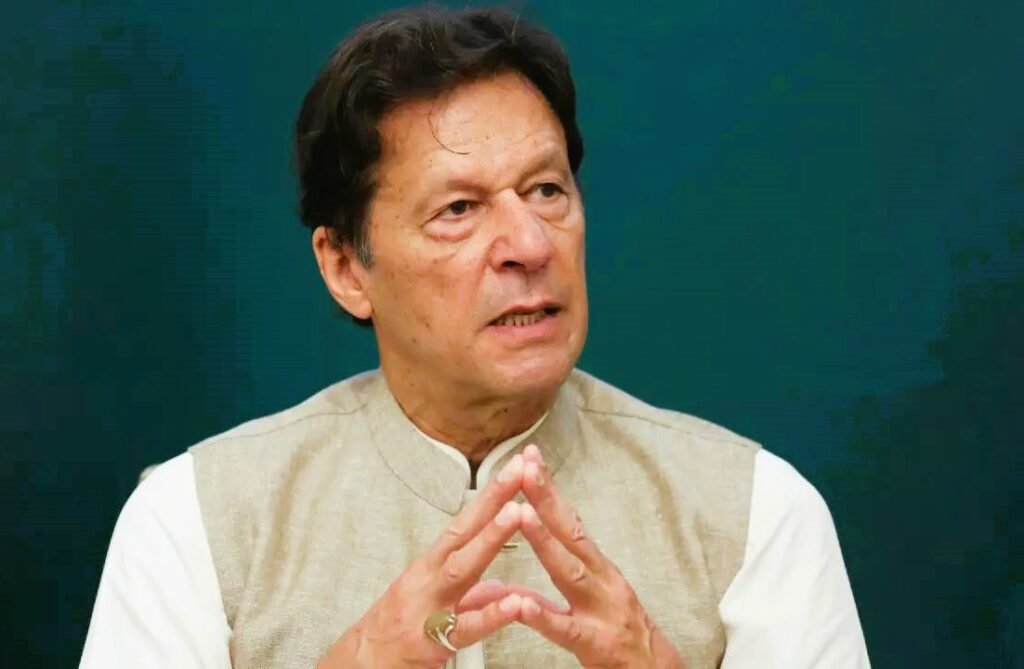Islamabad: In a major relief to embattled Imran Khan, the Islamabad High Court on Friday granted him protective bail for two weeks in a corruption case and barred the authorities from arresting the former Pakistan prime minister in any case registered anywhere in the country until Monday.
Three different benches of the Islamabad High Court (IHC) granted relief to the 70-year-old Pakistan Tehreek-e-Insaf (PTI) chief who was escorted to the court amid tight security.
In the first case, a special bench comprising Justice Miangul Hassan Aurangzeb and Justice Saman Rafat Imtiaz granted Khan protective bail in the Al-Qadir Trust corruption case for two weeks.
The bench heard the case a day after the Supreme Court termed Khan’s dramatic arrest from the IHC premises on Tuesday as “invalid and unlawful”.

Hearing another petition, the IHC granted bail to former premier Khan in all cases filed against him from May 9, the day he was arrested. Khan had filed a petition seeking details of all cases filed against him with the request for bail.
A division bench presided over the hearing held in courtroom No.2 of the IHC.
After hearing the arguments from the lawyers, the court gave Khan protective bail until May 17 in all cases filed after his arrest on Tuesday when he was present in the court.
Khan, in his petition, had asked the court that he was not aware of the violence but cases had been registered. While granting bail, the judge remarked that he should condemn all the incidents of violence in the wake of his arrest.
The bench also ordered the authorities to provide foolproof security to Khan.
In another case, IHC judge Justice Tariq Mehmood Jehangiri conducted the hearing in the Zile Shah murder case and after arguments, the court accepted Khan’s protective bail in the case till May 22.
Shah was a PTI supporter and was killed in violence in March when police raided Khan’s Lahore residence to arrest him.
The bench also ruled that Khan should not be arrested in any case until Monday, a kind of blanket protection in all cases. He was asked to appear before the Lahore High Court on Monday.
Khan’s lawyer Shoaib Shaheen told the media that the former premier had been given “blanket bail” in all cases and he cannot be arrested until Monday.
“Khan can be arrested in any case registered anywhere till Monday when he will appear before the Lahore High Court to get bail in relevant cases,” he said.
Responding to the court verdict, Interior Minister Rana Sanaullah said that the government would honour the court orders and not arrest Khan in the cases he had secured bail from the court.
The ruling Pakistan Muslim League-Nawaz (PML-N) on Friday announced that it will hold countrywide rallies in major cities across Pakistan to protest Khan’s release.

It has been directed by the party’s London-based supremo Nawaz Sharif, who has called on the PML-N leadership to mobilise its supporters for the protests, Samaa TV reported.
The IHC’s decision to grant Khan a two-week reprieve from arrest came hours after he warned of countrywide unrest if he was arrested again.
Khan arrived at the court amid tight security and underwent the biometric identification process and other formalities.
The hearing was delayed for nearly two hours due to security reasons.
Earlier, the two judges left the courtroom amid pro-Khan slogan-shouting by a lawyer. The upset judges later announced that the hearing will resume after Friday prayers.
Khan was arrested after the National Accountability Bureau (NAB) issued an arrest warrant against him.

The Al-Qadir Trust corruption case is about the setting up of Al-Qadir University for Sufism in the 2019 Sohawa area of Jhelum district of Punjab.
Khan is accused of looting Rs 50 billion from the national treasury in the case.
The former prime minister, along with his wife Bushra Bibi and other PTI leaders, is facing a NAB inquiry related to a settlement between the PTI government and a property tycoon.
Khan’s arrest by paramilitary Rangers sparked widespread protests across Pakistan, prompting the deployment of the Army here as well as in Punjab, Khyber Pakhtunkhwa and Balochistan provinces. The violent protests left at least eight people dead.
PTI
